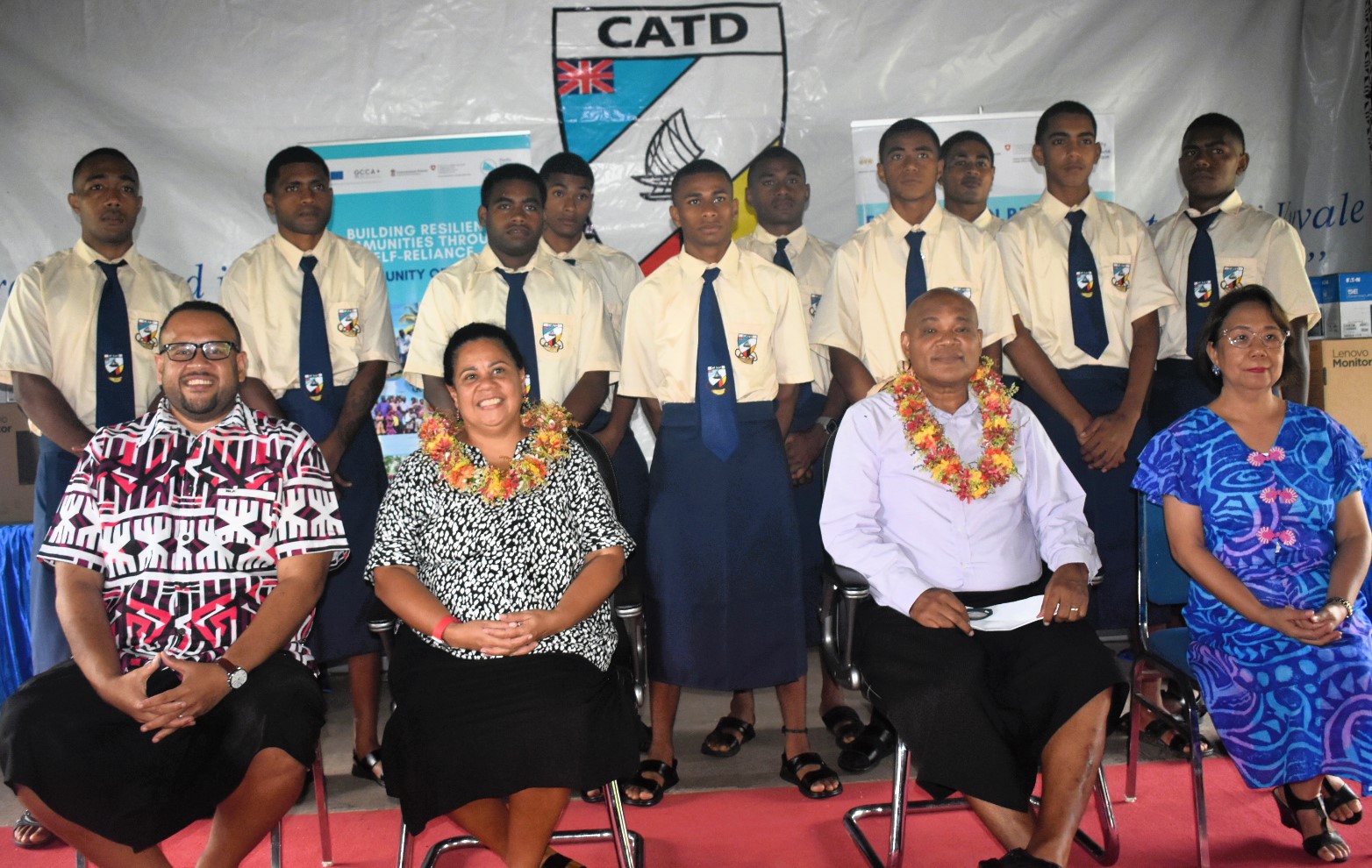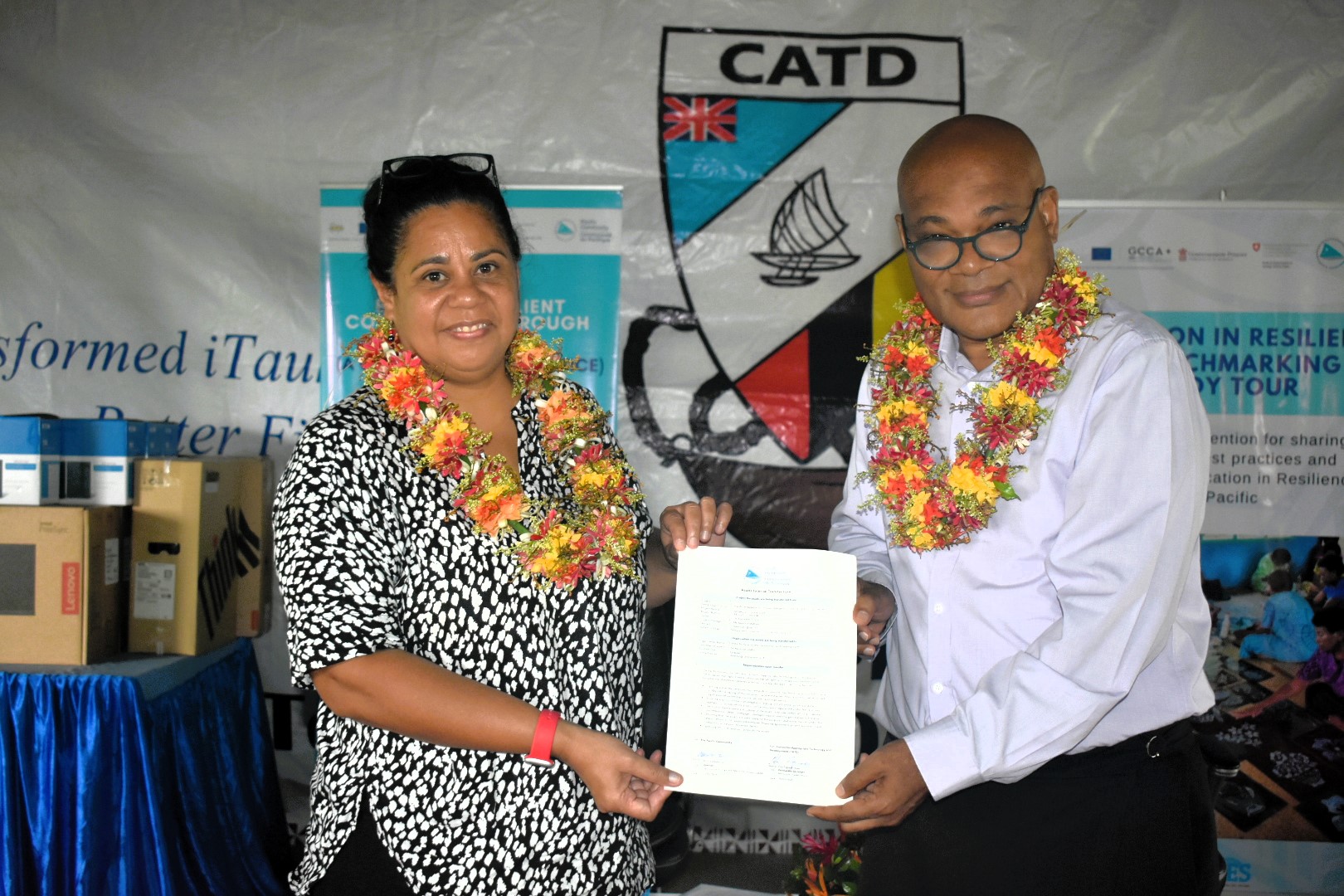
The Centre for Appropriate Technology and Development (CATD) in Nadave, Fiji, received essential equipment to offer the Certificates in Resilience Qualifications, Levels 2 and 4, from the Pacific Community (SPC) on February 20th, 2024.
Through its Pacific Adaptation to Climate Change and Resilience Building (PACRES) project, SPC reviewed the Resilience Qualification (also known as the articulated qualification) back in 2022 and, since then, has oriented and trained relevant trainers in the Pacific region.
CATD received 14 computer systems, Uninterruptible Power Supply (UPS) units, and Microsoft licensing. These resources will significantly enhance CATD's capacity to deliver high-quality education in Resilience.
The collaboration between SPC and CATD underscores the vital role partnerships play in fostering resilience-building initiatives. As CATD prepares to roll out the Resilience Qualification Certificate Level 2 in the upcoming semester â a curriculum developed and reviewed by SPC â the shared commitment to resilience education and capacity-building is unmistakable.
Five trainers from CATD were part of the Training of Trainers course on the Resilience Qualifications that took place in Nadi from January 15th to 24th, 2024. The institution has progressed and aligned its courses towards âGreening Technical and Vocational Education and Training (TVET)â, which reinforces the achievement of sustainable development.
The event began with a traditional iTaukei ceremony, where a Sevusevu was conducted to honour the chief guests and to signify the successful collaboration.
 Director of the Geoscience, Energy and Maritime Division at SPC, Mrs Rhonda Robinson, echoed similar sentiments during her address at the handover ceremony, stressing that SPC is committed to sustainable education and capacity development for its regional partners.
Director of the Geoscience, Energy and Maritime Division at SPC, Mrs Rhonda Robinson, echoed similar sentiments during her address at the handover ceremony, stressing that SPC is committed to sustainable education and capacity development for its regional partners.
âI understand this (qualification) will form part of a core set of qualifications that will be grown at CATD, and this is the first of more to come,â said Mrs Robinson.
âThis is going to be the foundation for the delivery of your trade certificates that you're also undertaking across theories such as energy security through biogas and sustainable boat building, for example, and I commend you for pushing on to take this step forward. We stand ready to continue to support as and when needed through the efforts we've already provided you.â
The contribution to the school was welcomed and appreciated, as articulated by Fijiâs Permanent Secretary for the Ministry of iTaukei Affairs, Mr Pita Tagicakirewa.
Mr Tagicakirewa shared that Nadave, as an institution, caters for iTaukei students from across the 14 provinces in Fiji and the island of Rotuma, and this boost came in a timely way, assisting the climate-resilient efforts at the community level of intervention.
âThere is a lot of high-level talk but a little happening on the ground. It is imperative that the equipment available for use aligns with the direction of development of the school in the climate change, adaptation, mitigation and resilience space,â he said.
The PACRES project has oriented the Resilience qualification, Certificate levels 2 and 4 and Diploma levels 5 and 6 across the region, and additionally conducted training of trainersâ courses for education experts, and institutions from Fiji, Vanuatu, Papua New Guinea, Solomon Islands, and Tonga.
PACRES is a (EUD) $2.5M project with the European Union and is jointly implemented by the Secretariat of the Pacific Regional Environment Programme (SPREP), Pacific Island Forum Secretariat, Pacific Community (SPC) and the University of the South Pacific (USP).
By Alisi Vucago-Waibuta.

